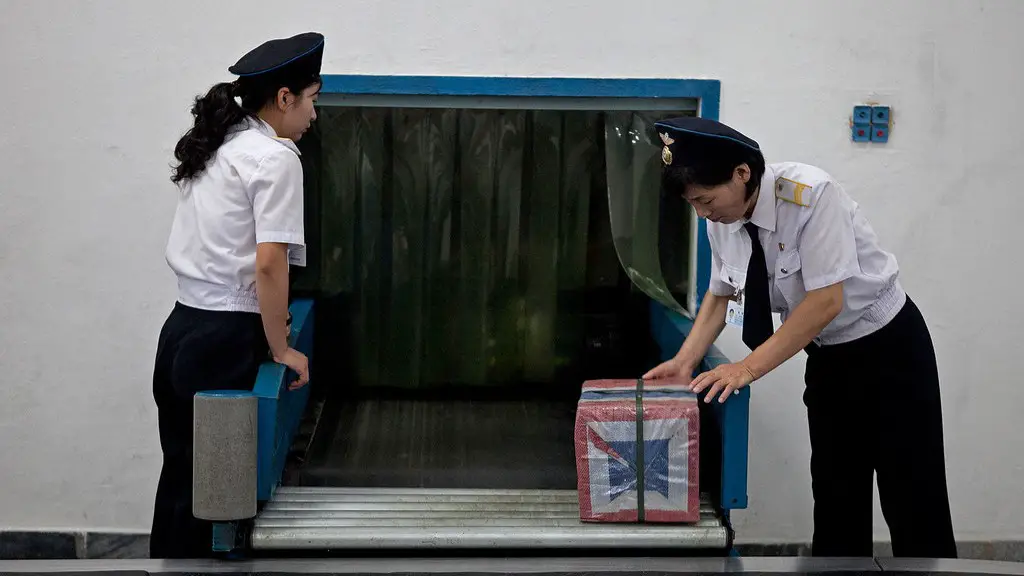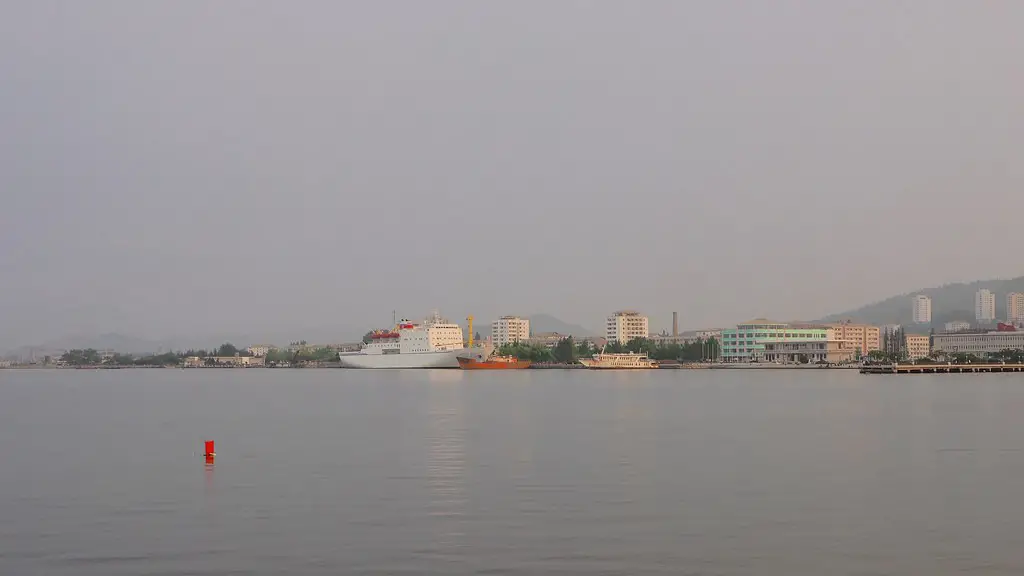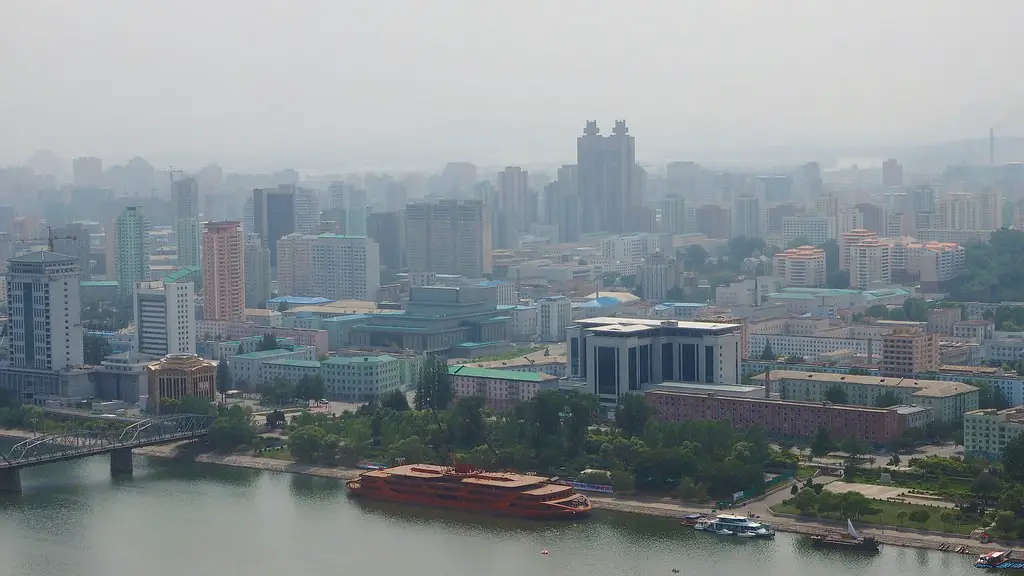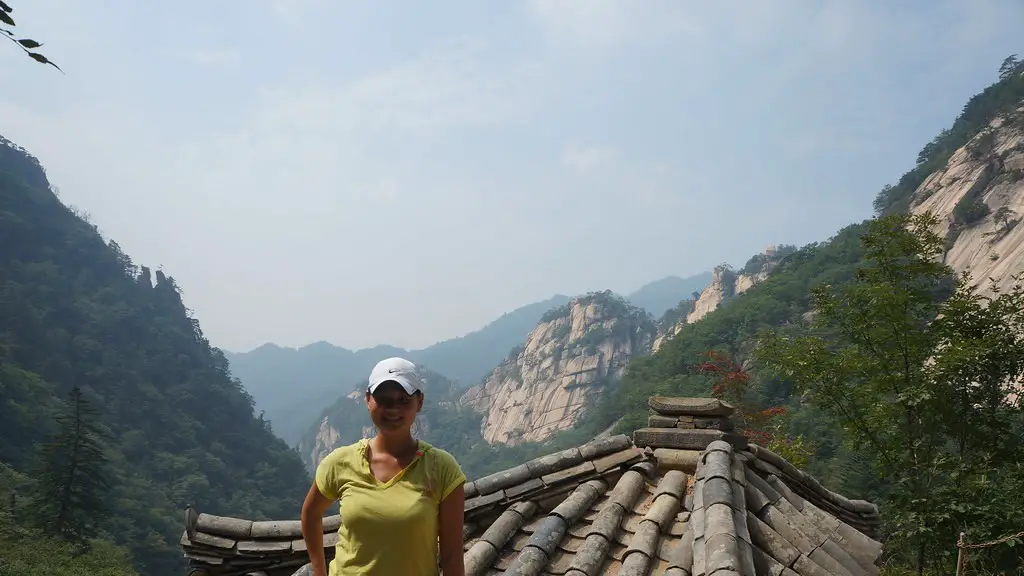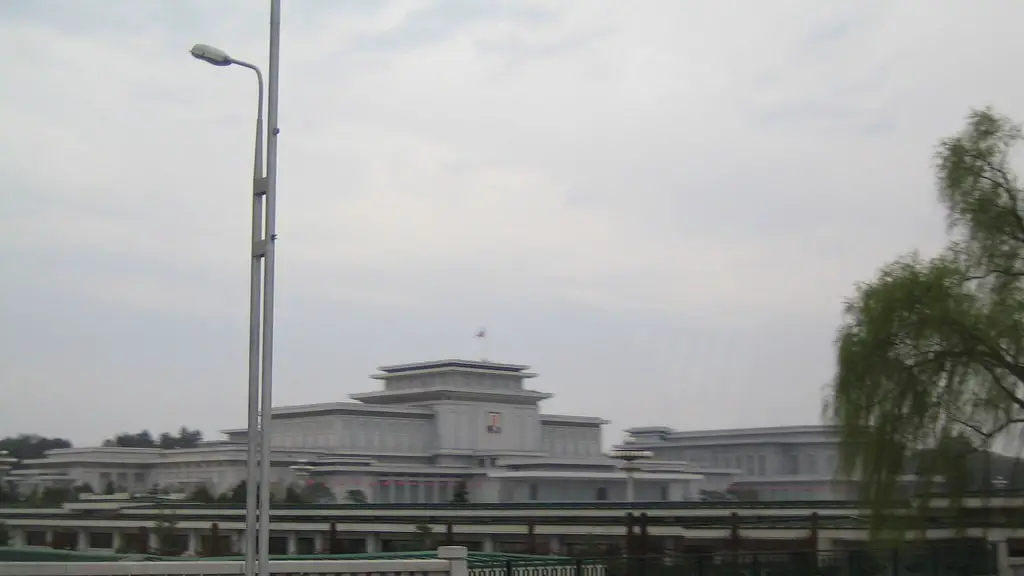Introduction: North Korea is one of the few remaining ‘closed’ countries that restricts the freedoms of its citizens in an effort to control the population and its resources. North Korea has been shrouded in secrecy since its formation and few outsiders understand what things are not allowed inside the country. While media reports give us a glimpse of the restrictive measures taken in North Korea, it is important to understand what types of things are not allowed in North Korea. This article will examine the types of things that are not allowed in North Korea by providing background information, relevant data and perspectives from experts.
Regulation of the PressOne basic human right that North Korea does not respect is freedom of the press. Newspapers, magazines and news streamed on the internet is heavily censored by the ruling party, the Worker’s Party of Korea (WPK). The press plays a particularly important role in a totalitarian state such as North Korea, as it is used as a tool to spread the ideologies of the ruling party and to control the population. Newspapers usually report on the activities and messages of North Korea’s leaders and rarely tell the truth about the country’s economic or human rights situation.
What little information North Korean citizens get is through the state-run media, which is regularly filled with propaganda focussing on the country’s past and present victories. In addition, the contents of broadcasts and newspapers are closely monitored by secretive WPK officials.
Restrictions of ReligionAnother basic human right denied to North Korean citizens is freedom of religion. The communist ideology of the WPK does not allow for religious freedom and any practice of religion is strictly forbidden. There are an estimated 700,000 Christians in North Korea, although their numbers are declining due to persecution and imprisonment. There have also been reports of public executions for those caught practicing religion.
Christians are not allowed to own Bibles or gather for religious services. They often meet in secret and the government actively searches for those practicing religion and cracks down on any faith-related activities. North Korea is also the only country in the world to have officially declared itself an atheist state.
Restrictions on TravelTravel to and from North Korea is highly restricted. North Koreans are not allowed to travel abroad without obtaining a special permit from the government. This permit is only granted to those who are perceived to be loyal to the regime and their activities are closely monitored. Any North Korean attempting to leave the country without permission is often arrested and sent to the country’s notorious labor camps.
Foreigners are also not allowed to visit certain parts of the country, such as military bases and government buildings. It is also impossible for foreign journalists to enter the country to investigate and report on the situation there. In fact, many foreign countries have issued travel advisories for their citizens not to visit North Korea due to its hostile attitude towards foreigners.
Restrictions on Internet AccessAccess to the global internet is almost non-existent in North Korea. North Koreans are not allowed to access the internet without special permission. This is to prevent information from outside the country from entering North Korea and to control the population. Instead, North Koreans are required to use a heavily filtered and monitored national intranet, which only consists of government-approved websites.
This intranet is monitored by the government and can be shut down completely if any anti-government activities are detected. The country’s few internet cafes are also heavily censored and monitored. North Koreans can be arrested for accessing unauthorized websites or for attempting to access the global internet.
Citizens’ Ability To Speak Freely
One of the fundamental freedoms denied to North Korean citizens is the right to express their opinion freely. North Koreans are not allowed to criticize the government, the WPK or its leaders. Any criticism is seen as an act of treason and can be punishable by lengthy prison sentences. The government also uses its own informants to ensure that the population is obeying the laws and report any suspicious activities.
North Koreans are also forbidden from engaging in any type of political activity or engaging with foreign citizens in any way. Any attempt to contact foreigners can lead to imprisonment and harsh punishments. These restrictions are in place to prevent the spread of any dissenting views and to quash any form of political dissent.
Restrictions On Books, Films, Music and ArtAccess to books, films, music and other forms of art is heavily restricted in North Korea. All books, films, music and art must be approved by the government and only those deemed to be loyal to the regime are allowed to produce and distribute them. Books and films must be generous in their depiction of North Korea and its leaders and any criticism is strictly forbidden.
Foreign films, television shows and music are not allowed to be imported into the country and North Koreans caught with any foreign materials can face severe punishments. This restriction is in place to ensure that North Koreans are not exposed to foreign culture and values, and that they remain unenlightened of what is taking place outside of North Korea.
Restrictions On Education
The education system in North Korea is also heavily restricted. Education is tightly controlled by the government and all schools must teach the same topics and ideologies, in line with the state’s communist values. Students are not allowed to question the teachings or challenge them in any way and schools are not allowed to teach any foreign language or literature, except for English.
In addition, most schools have limited access to the internet and the libraries are filled with books, magazines and newspapers that are approved by the government. As a result, North Koreans are not exposed to any alternate points of view and lack critical thinking skills.
Restrictions On Foreign Investment
The government of North Korea does not allow for any foreign investment or ownership of businesses. This is done to prevent any ‘external’ influences from entering the country and to ensure that the ruling party has complete control over the economy. As a result, the North Korean economy has been stagnant for decades and its citizens remain poor while the government has unquestioned control of the country.
The government also restricts the types of businesses that can be established in the country. For example, internet businesses and media-related businesses are prohibited, as are any businesses that are seen to be in opposition to the regime. North Korea has also been accused of operating businesses outside the country to generate income.
Restrictions On Food and Resources
The government of North Korea has imposed heavy restrictions on the import and export of food and other resources. The government does not permit the importation of any foreign food supplies, in an effort to maintain control over the population by rationing food. It has also imposed restrictions on exports, preventing its citizens from trading with other countries.
In addition, the government heavily taxes the citizens in order to collect more money to fund its military operations. This includes a tax on the access to electricity and other basic utilities, as well as a tax on the sale of goods. This has resulted in a decrease in the quality of life for its citizens, as they are unable to access basic resources.
Restrictions On Foreign Aid
North Korea also restricts the amount of foreign aid that can enter the country. The government does not allow for the direct distribution of food or medical supplies, as it does not want to be seen as relying on foreign assistance. It also does not want to be seen as softening its stance on its restrictions, lest it be seen as vulnerable.
Organizations that attempt to bring humanitarian aid to North Korea are often met with hostility and suspicion. They are often accused of engaging in espionage or trying to spread Western values into the country. In addition, the government has been known to delay or reject foreign aid shipments, as it does not want to be seen as owing anything to foreign countries.
Restrictions On Political Dissent
Political dissent is not tolerated in North Korea and there is no space for any form of opposition to the ruling WPK. Any activity that is perceived to be in opposition to the regime can lead to arrest and imprisonment. All political speech and activities are strictly forbidden and dissidents are often sent to labor camps or executed in public.
In addition, the government does not tolerate any form of protest or demonstration. Any citizen that is caught demonstrating in the streets can face harsh punishment, including execution. These restrictions are in place to ensure that the government has absolute control over the population.
Restrictions On Foreign Press
Foreign press is also not allowed inside North Korea, as the government wants to maintain its secrecy and control over the population. Any foreign journalist that attempts to enter the country and report on the situation there can be declared a spy and subjected to harsh punishments, including imprisonment.
The government has also been known to intimidate and threaten foreign journalists in order to prevent them from reporting on the situation in North Korea. It has been accused of intimidating and harassing foreign journalists in order to keep them from crossing its borders and reporting on what is really happening in the country.
Restrictions On Firearms and Weapons
The possession of firearms and weapons is strictly regulated in North Korea. All citizens are required to register their firearms with the government and can only use them for hunting, with special permission. The military is the only group that is allowed to possess heavy weapons, such as tanks and artillery pieces.
The government also restricts the ownership and use of knives and other weapons. Any North Korean caught in possession of an unregistered weapon can face severe punishment, including imprisonment and public execution. This is done to ensure the safety of the population and to help the government maintain control over the country.
